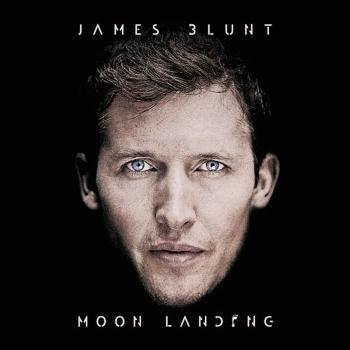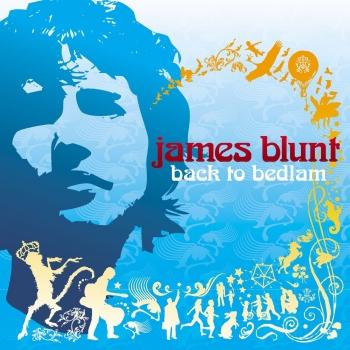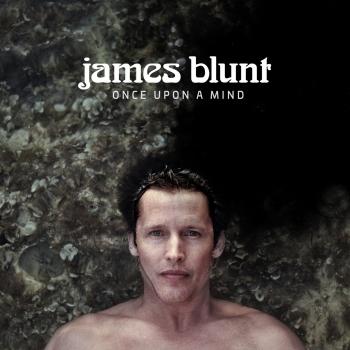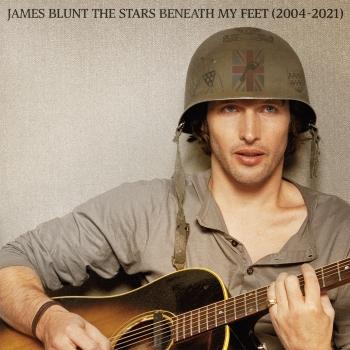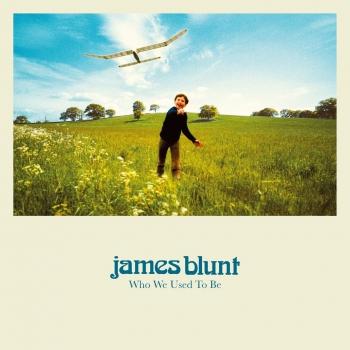
Moon Landing James Blunt
Album Info
Album Veröffentlichung:
2014
HRA-Veröffentlichung:
28.02.2015
Das Album enthält Albumcover
Entschuldigen Sie bitte!
Sehr geehrter HIGHRESAUDIO Besucher,
leider kann das Album zurzeit aufgrund von Länder- und Lizenzbeschränkungen nicht gekauft werden oder uns liegt der offizielle Veröffentlichungstermin für Ihr Land noch nicht vor. Wir aktualisieren unsere Veröffentlichungstermine ein- bis zweimal die Woche. Bitte schauen Sie ab und zu mal wieder rein.
Wir empfehlen Ihnen das Album auf Ihre Merkliste zu setzen.
Wir bedanken uns für Ihr Verständnis und Ihre Geduld.
Ihr, HIGHRESAUDIO
- 1 Face The Sun 04:02
- 2 Satellites 03:13
- 3 Bonfire Heart 03:57
- 4 Heart To Heart 03:27
- 5 Miss America 03:04
- 6 The Only One 03:42
- 7 Sun On Sunday 03:15
- 8 Bones 02:51
- 9 Always Hate Me 03:36
- 10 Postcards 04:45
- 11 Blue On Blue 03:50
- 12 Miss America (Acoustic Version) 03:04
Info zu Moon Landing
James Blunt
At the end of 2021, James Blunt released a greatest hits album. “Or as I like to call it – The Greatest Hit And Songs I Wish You’d Heard,” he says, which, as anyone who follows his Twitter account will tell you, is a very James Blunt thing to say: it’s self-deprecating, funny, and predicated on the recurrent gag that the only James Blunt song anyone knows or cares about is his multi-platinum 2005 single You’re Beautiful.
In fact, the greatest hits album (it was called The Stars Beneath My Feet, for the avoidance of doubt) rounded up the first 17 years of a career that feels extraordinary by anyone’s standards. He was an artist who appeared to come out of nowhere – the first gig James Blunt ever attended was the first gig James Blunt ever performed, shortly after leaving the army in 2002 – and immediately released the biggest-selling album of the decade in the UK: Back To Bedlam shifted over 12m copies. Its incredible success was followed by an equally incredible backlash – one of those weird cultural moments where dislike of an artist’s ubiquity becomes performative, and the artist in question becomes a kind of living shorthand for all that’s wrong with music and, indeed, British society.
Somehow, the Blunt backlash grew to involve everyone from the Shadow Culture Secretary to whoever it is that decides what becomes Cockney rhyming slang. “Did I struggle with it?” he says. “Yes. Did I understand it? No. I understand it better now. How do you deal with it? Well, I think you move to Ibiza and you buy a beautiful house and you go to a nightclub and you get exceptionally high and you make sure you have a fucking great time,” he laughs. “I did all the things that made it worthwhile, I had a fantastic, fantastic time and I made up for all that negativity.”
He isn’t joking: few pop stars can claim to have tested the theory that living well is the best revenge quite so thoroughly as James Blunt in the second half of the Noughties, as evidenced by his frankly eye-popping forthcoming autobiography Loosely Based On A Made -Up Story (“what can you do other than spill it all out?” reasons Blunt about the book’s no-holds-barred, access-all-areas approach).
Perhaps his appetite for hedonism was shaped a little by the fact that, six years previously, he’d been in the army, in Kosovo, leading a NATO peacekeeping force toward Pristina, an important and noble job, but one distinctly lacking in opportunities to let one’s hair down in the company of supermodels and Hollywood stars. Either way, there’s a distinct irony in discovering that an artist frequently labelled as the epitome of beige blandness was – at the exact point he was being accused of beige blandness – in the Balearics, attempting to grow hallucinogenic fruit by watering a fig tree with liquid LSD (no spoilers, but it doesn’t work).
Perhaps more importantly, he also released a further succession of hit albums, every one of them a Top Ten hit, and – contrary to the recurrent gag about You’re Beautiful – a brace of huge singles: 1973, Stay The Night, Bonfire Heart, OK, the latter a collaboration with German house producer Robin Schultz. He became quite astonishingly adept at social media – his pithiest Tweets were even published as a book, 2020’s How To Be A Complete And Utter Blunt: The Diary Of A Reluctant Social Media Sensation – which seemed to transform him into something approaching a national treasure. He started attracting a noticeably different audience to the one you might expect: anyone who turned up at his Greatest Hits tour might have been surprised to find not just 40 and 50 somethings, but people too young to remember Back To Bedlam as anything other than a fuzzy memory from their primary school years.
“I think the truth is that they were fed my music on long car journeys. They were in the back of their parents’ car and their parents were playing this fucking album over and over again, while they’re thinking “play something else!”, but now it’s engrained in them and they know every single word to every single song, and they’re there singing along. I think it’s been helped by my online presence, Twitter and a couple of things on TikTok where they go,” oh, it’s Blunty, and he’s funny too!”. So I’m getting a crowd of young people, stag dos, hen dos. It’s kind of a bizarre place to be.”
But, as Blunt points out, a Greatest Hits album has an air of finality about it. “You think that it signifies an end, mentally – a gathering of all your work. But it also signifies a new start to me, because the record label called me up and told me they were signing me to a new deal, so – a new beginning. And it’s also a kind of release: you think “OK, you can do whatever you like now, this is all gravy, this is a bonus. You’ve got my Greatest Hits, that’s what I’m known for, the next stuff isn’t going to be on a Greatest Hits – surely not – so this is all… bonus tracks. For me. I really approached this album for me.”
“This album” is Who We Used To Be. The first single, Beside You, is, as Blunt puts it, “pop, very, very easy on the ear, sweet, incredibly simple”: it’s also the latest in a series of James Blunt songs that seem gently infected with the spirit of the dancefloors in his adopted home of Ibiza. But, as Blunt also points out, the rest of the album is markedly different in tone: a collection of songs that address some very grown-up concerns: the pleasures and difficulties of long-term relationships, ageing, fatherhood, death. “I’m at an age where parents are getting frail, getting old, potentially dying. I’ve got children now moving up.
There are these fundamental changes and huge shifts in responsibility and mental position in the world. And it gives you so much to write about. I haven’t had this much to write about since I was a teenager, when you’re trying to find your place in the world. I wrote a song called You’re Beautiful once upon a time, about catching a girl’s every for one second and saying ‘you’re beautiful’ in my mind, but on this album, I’m saying to my wife, ‘all the love I ever needed, I got it from you’ – which is something much bigger, a whole lifetime’s worth of emotion and love. And that’s the challenge – I suppose that’s what I’ve been searching for, a song that’s more meaningful than You’re Beautiful, because this isn’t a girl I passed on the subway, this is the girl I live with and love for my whole fucking life. ‘You’re lovely darling’ isn’t really good enough.”
His wife crops up again during Who We Used To Be, on Some Kind Of Beautiful and indeed Beside You, in both cases depicted still leading the charge at a party at 5am – you have to say, Mrs Blunt sounds like a whole heap of fun – as do the singer’s children, on closer Glow. But amid the cast of Who We Used To Be, there are characters that aren’t dealing with adult life so well. “I Won’t Die With You is specifically about a friend of mine who just seems to have given up on life, who seems to feel that life is over now he’s reached his 40s, saying ‘hang on, this isn’t even the half-way mark, hopefully, and you’ve given up’.”
I don’t want to feel like life is over, as some of my generation are starting to do – the excitement and feeling of life is really still there. Saving A Life is pretty obvious in its way, it’s about someone who’s really struggling in life and the frustration that whatever I do I cannot help them – we all have that friend who we just can’t pull back from that depression or addiction. Last Dance is more complex. I have lots of friends who find themselves not with their first love, or their dream love – they just ended up married to someone else. You know, as we hit the age of 40, we think if we don’t act now, the potential for that dream of a family and children is over. So you have these people where you think: if only they had been with so-and-so, they always loved so-and-so, but they’ve ended up with that person instead. That’s the song: it’s that last dance, when the music stops and you’ve got to make a move now.”
And there’s Dark Thought, a song about the late Carrie Fisher, who Blunt met at a party just before he was about to fly LA to record his debut album, and who astonished him by immediately making the “absolutely fucking crazy” suggestion that he come and stay with her while he was in the city. The pair became incredibly close, if unlikely, friends: Blunt calls her his ‘American mother’.
After she died in 2016, he tried to write about her, but, he says, “everything I wrote was just lite – L I T E – and not worthy of this great, great woman, this incredible mind, such a dear friend to me”, so he settled for including a photograph of the giant ceramic Prozac pill in which Fisher’s ashes were placed on the label of 2019’s Once Upon A Mind (the same pill appeared in the artwork of Back To Bedlam, after Blunt noticed it in Fisher’s home). But during the writing of Who We Used To Be, he thought about his experience of visiting Fisher’s former home after her death. “And Dark Thought is just me describing the journey of going to say goodbye at her house. Like all of the best work that anyone ever does, it’s just without thought, just describing how it was without overthinking it: that’s when it comes out. It’s honest whereas everything else was just contrived.”
The thing is, says Blunt, the whole album was a bit like that. “Some albums are a struggle to write, because I’ve got less to write about, and I think you can probably spot that with the quality of the album. And some of them just come naturally. I wrote this album very quickly, with great ease. I feel this album is one that I’ve nailed, lyrically – it’s just come at the right time, for my time of life.”
Dieses Album enthält kein Booklet











